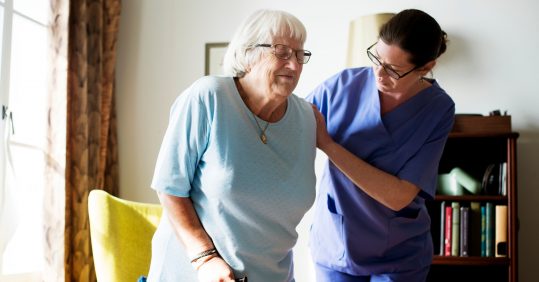By Ashley Young-
Care home residents will be able to spend time away from their care home with family and friends, for the first time since the lockdown in March 2020, in what some critics find conflicting with the recent extension of lockdown easing.
Boris Johnson today announced an extension of the date for the final stage of lockdown easing from June 21 to July 19. The extension was in response to reported data showing a rise in death rates arising from the Delta variant.
Only last week, the issue of how patients being sent back to care homes during the pandemic without testing, despite what was said to have been assurances from Matt Hancock, was discussed after Dominic Cummings leaks to the press. Suddenly, with estimates of 40,000 deaths in a predicted third wave, it is surprising why now has been considered the perfect time to afford care home residents more freedom to roam around family.
Care home residents will have testing kits with them, but awareness of a positive testing of covid-19 doesn’t make matters any better.
Every resident can nominate an ‘essential care giver’ to provide additional support during visits, under the arrangements which the British government expressed as the latest cautious step taken to restore care home visits to as close to normality as possible.
Currently, residents can only leave the care home for a visit if outdoors or for high-priority reasons, such as a dental or GP appointment, but will now be able to leave the home for more social reasons without having to isolate.
From 21 June, people admitted to a care home from the community will no longer have to self-isolate for 14 days on arrival, so residents will have a less disruptive introduction to their new home.
The government has also strengthened the role of the ‘essential care giver’, which means every resident should be able to nominate a friend or family member to provide extra care on their visits. Essential care givers can continue to visit during outbreaks. The essential care giver role is intended to provide additional support from someone with a unique personal relationship with the resident.
They have access to the same personal protective equipment (PPE) and testing supply as care home workers, and should be allowed to continue to visit during periods of isolation or where there is an outbreak.
Care home residents would still need to isolate for 14 days following a visit out that would be deemed high risk through a risk assessment or after an overnight stay at hospital.
Almost £1.8 billion has been made available for adult social care including infection prevention and control measures to support providers to pay staff who are self-isolating and limit the movement of staff where possible.
Care homes will need to conduct individual risk assessments to ensure visits out are not high-risk, which will take into account the number of nights the resident plans to stay out of the home, under the fresh arrangements.
Residents admitted to care homes from the community are given an enhanced testing regime consisting of a PCR test before admission, a PCR test on the day of admission and a further PCR test 7 days later.
Decisions about an individual resident’s visits outside of a care home should be taken with the resident’s assessed needs and circumstances considered.
The care home should balance the benefits of visits out of the care home against a consideration of the risks to others in the home, where necessary.The changes will ensure new residents being admitted from the community “will have a less disruptive introduction to their new home”, DHSC said.
They will need to take a PCR test before they arrive, on the day of arrival and seven days later.
Individual risk assessments should take into account:the vaccination status of residents, visitors and staff
levels of infection in the community variants of concern in the community
where the resident is going on a visit and what activities they will take part in while on the visit
the mode of transport residents intend to use.




